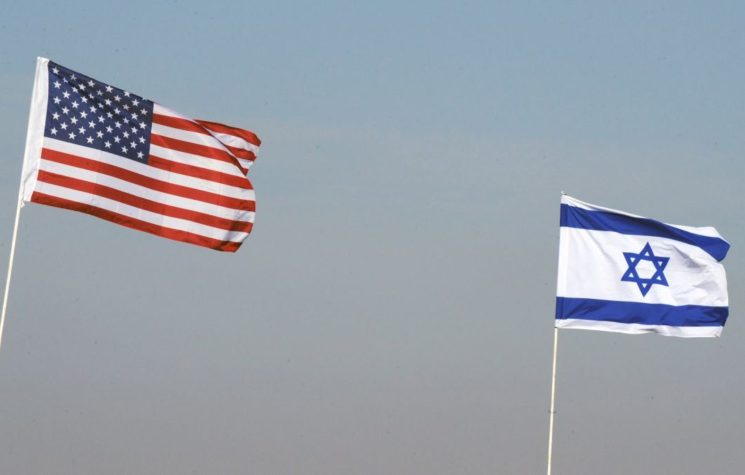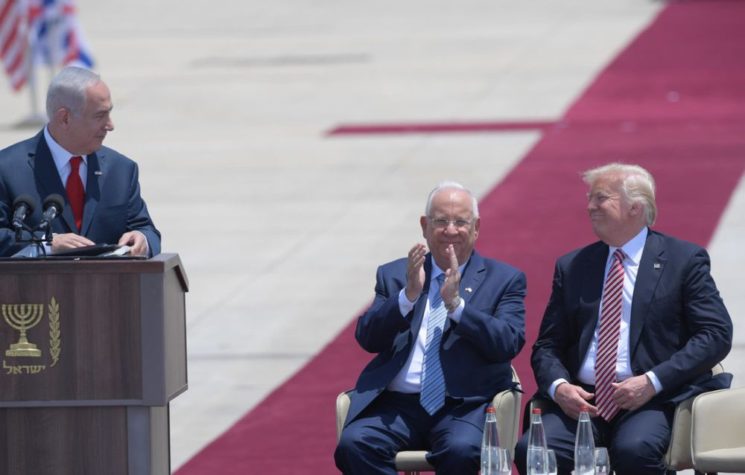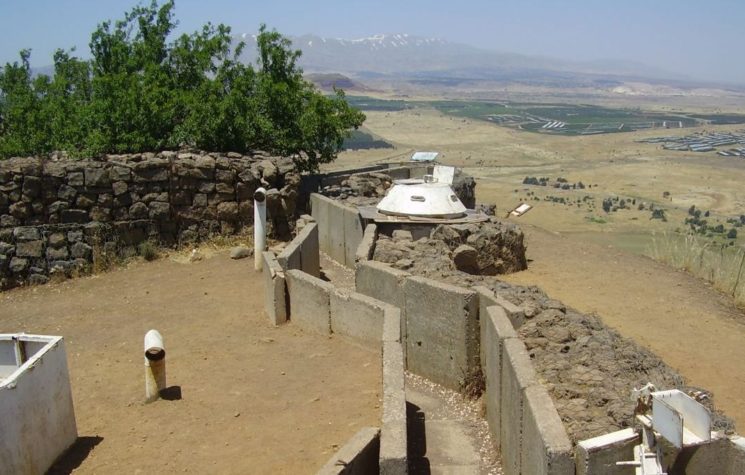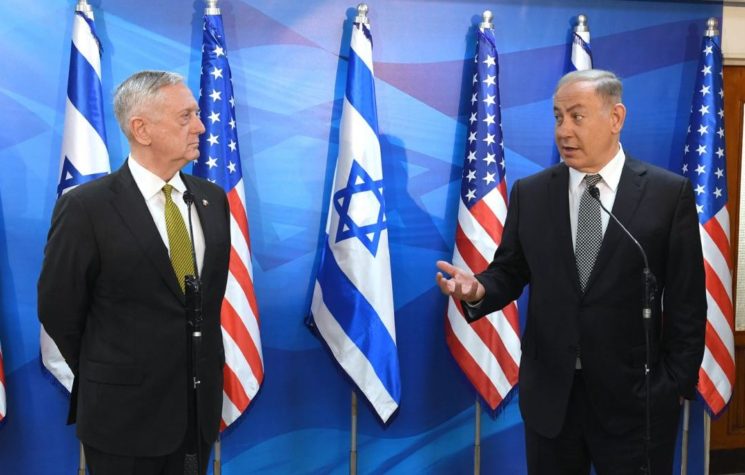One of the tropes Israel and its international phalanx of lobbyists has used since the state’s inception in 1948 is that “Poor Little Israel” requires Western money and diplomatic support because the small country is surrounded by hostile Arab countries. Neither of these contentions have ever been true.
On August 7, 2019, the US Congressional Research Service (CRS) reported that Israel has been the largest recipient of cumulative assistance since World War II. In current non-inflation-adjusted dollars, Israel has received a total of $142.3 billion in US bilateral assistance and defense funding. Most of the US government assistance has been military in nature.
In addition to US assistance, Israel Bonds, sold through the Development Corporation for Israel (DCI), which is headquartered in New York, have seen $40 billion in sales, with $1.2 billion in annual sales being reached in 2013, a record for annual sales. The $1 billion mark was also reached in 2014 and 2015. One of the reasons behind the global Boycott, Divestment, and Sanctions (BDS) program to disinvest in Israel in retaliation for their treatment of the Palestinian people, is the fact that 90 US states and municipalities, in addition to labor unions, corporations, universities, and foundations, have invested their pension and treasury funds in the DCI.
Israel has also received billions of dollars in loan guarantees from the United States. The CRS report states that these guarantees have boosted the country’s “fiscal standing among international creditors in capital markets.” The US Congress is set to pass a bill that authorized $3.8 billion in US loan guarantees to Israel through Fiscal Year 2023.
Between 1973 and 1991, the US State Department’s Migration and Refugee Assistance account (MRA) provided $460 million to the private foundation, United Jewish Appeal (UPA) to resettle Jewish refugees in Israel. Many of these so-called “refugees” were from the Soviet Union and their “stay” in Israel was rather short. Many of them re-emigrated from Israel to the United States, where they enjoyed the freedom to engage in criminal enterprises centered mainly in Brighton Beach in Brooklyn, New York (nicknamed “Little Odessa”); Miami and Palm Beach; Florida; Newark and Atlantic City, New Jersey; Los Angeles, California; and Las Vegas, Nevada. A number of these refugees-turned-gangsters invested heavily in the Trump Organization’s residential properties in Manhattan; Sunny Isles Beach, north of Miami; Las Vegas; Phoenix, Arizona; Panama City, Panama; Toronto, Canada; Punta del Este, Uruguay; as well as Trump casinos in Atlantic City. The effects of these investments by what is alternately called by the US Federal Bureau of Information the “Organizatsiya,” “Eurasian Mafia,” and “Red Mafiya,” and, more informally and in very hushed tones, the “Kosher Nostra,” has plagued the Trump administration and contributed to its many scandals.
The recent arrest at Dulles International Airport of Lev Parnas and Igor Fruman, two Miami-based Organizatsiya players, on federal election law violations is merely the latest in a string of such law enforcement actions. The latest arrest involves Trump’s personal attorney, Rudolph Giuliani, who, as the US Attorney for the Southern District of New York (SDNY), brought criminal charges against and convictions of the leaders of the five Italian Mafia crime families in New York (Genovese, Gambino, Lucchese, Colombo, and Bonanno). Giuliani, as mayor of New York City, permitted the Organizatsiya crime families of Brooklyn to flourish in the absence of the Italian mob. Today, these crime figures travel freely between the United States and Israel, the latter having become a central cog in global black market, money laundering, and smuggling operations. It is Israel’s sanctioning of criminal activities that has directly led to it being one of the world’s wealthiest countries.
Critics of taxpayer-funded US military assistance to Israel point out that the Israelis are currently a major exporter of military systems to other countries, which include some of the so-called “hostile Arab nations” that surround Israel. Israel’s sizable domestic military industry has netted sales of missile defense systems, unmanned aerial vehicles, cyber security products, radar, and electronic communications systems to the United Arab Emirates and Saudi Arabia, in addition to India, Azerbaijan, Vietnam, Thailand, South Korea, Singapore, Philippines, Australia, France, Germany, Italy, Russia, Brazil, and the United States.
The CRS report also includes information on increasing military ties between Israel and China. These growing ties have alarmed the US Navy, which has previously made port calls at the Israeli naval base in Ashdod on the Mediterranean coast. According to the report: “. . . a state-owned Chinese company (the Shanghai International Port Group) has secured the contract to operate a new terminal at Haifa’s seaport for 25 years (beginning in 2021), and another state-owned Chinese company (a subsidiary of China Harbor Engineering Company) is developing Ashdod’s new port. Both Haifa and Ashdod host Israeli naval bases. Due to the Chinese contract for Haifa, the US Navy is reportedly reconsidering its practice of periodically docking at the base there.” Considering the close ties between Donald Trump and his son-in-law, Jared Kushner, to Israeli Prime Minister Binyamin Netanyahu, it is likely that the US Navy’s objections to sharing port facilities with Chinese construction crews with be vetoed by the White House.
Israel’s status of a small country fending off hostile moves by surrounding Arab and Muslim nations beggars belief. Israel maintains close relations with Egypt, with which it has maintained diplomatic ties since 1979. Israel and Egypt jointly engage in military operations directed against jihadist groups in the Sinai Peninsula, as well as restricting access to the Gaza Strip. Israel also maintains diplomatic relations with Jordan. Low level non-diplomatic relations also exist between Israel and Bahrain (with which Israel has an intelligence-sharing relationship), Iraqi Kurdistan, Morocco, Saudi Arabia (with which Israel has an agreement to stockpile military supplies in forward operating locations in the event of a joint Israeli-Saudi-UAE attack on Iran), Oman; Djibouti; the United Arab Emirates (where Israel maintains a non-diplomatic office in Abu Dhabi), the Tobruk-based government of Libyan warlord General Khalifa Haftar; and the exiled government of Yemen, which is based in Riyadh. Previous non-diplomatic relations between Israel and Lebanon, Turkey, Mauritania, Maldives, Qatar and Tunisia were frozen as a result of Israeli military actions against the Palestinians and other issues. Full diplomatic relations exist between Israel and such Muslim nations as Kazakhstan, Turkmenistan, and Azerbaijan. Israel also maintains low-level non-diplomatic and trade relations with non-Arab Muslim nations, including Afghanistan, Indonesia, and Malaysia. There are various reports of Israeli diplomats having paid covert visits to Somalia and the self-declared Somaliland.
Israel’s closer relationship with Saudi Arabia should put to rest the notion of Israel being surrounded by hostile countries. There are credible news reports that Israel has been selling the Saudis advanced military drones via South Africa. It has also been credibly reported that Israel’s Mossad and the Saudi General Intelligence Directorate (GID) maintain direct links and that Mossad facilitated the provision of the Pegasus mobile phone tracking software, manufactured by the Herzliya-based NSO Group, to the GID. Pegasus was allegedly used by GID in its murder of US-based journalist Jamal Khashoggi in Istanbul in October 2018. Israel and the UAE and Bahrain also apparently pooled their intelligence resources to ensure a Trump administration withdrawal from the Joint Comprehensive Plan of Action (JCPOA) – the nuclear agreement with Iran – and a multinational embargo instituted against Qatar.
Today, “Poor Little Israel” exercises de facto superpower influence over its own region and long-reach diplomatic power over nations as far away as the Marshall Islands, Vanuatu, and Nauru in the South Pacific.
























